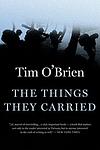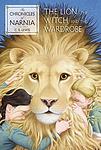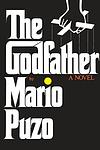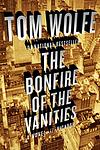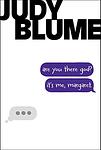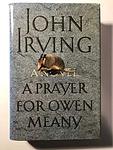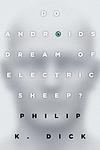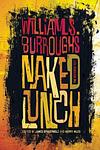The Greatest "Fiction" Books Since 1950
Click to learn how this list is calculated.
This list represents a comprehensive and trusted collection of the greatest books. Developed through a specialized algorithm, it brings together 284 'best of' book lists to form a definitive guide to the world's most acclaimed books. For those interested in how these books are chosen, additional details can be found on the rankings page.
Genres
Countries
Date Range
Reading Statistics
Click the button below to see how many of these books you've read!
Download
If you're interested in downloading this list as a CSV file for use in a spreadsheet application, you can easily do so by clicking the button below. Please note that to ensure a manageable file size and faster download, the CSV will include details for only the first 500 books.
Download-
76. Go Tell it on the Mountain by James Baldwin
This novel explores the role of the Christian Church in the lives of African-Americans, both as a source of repression and moral hypocrisy and as a source of inspiration and community. It also, more broadly, examines the role of the Pentecostal Church in the African American experience. The narrative focuses on a fourteen-year-old boy's struggle to discover his identity amidst a family filled with secrets and a life marked by a religious community's strict moral code.
-
77. Disgrace by J M Coetzee
"Disgrace" is a novel that explores the life of a middle-aged professor in South Africa who is dismissed from his position after having an affair with a student. After losing his job, he moves to the countryside to live with his daughter, where they experience a violent attack that significantly alters their lives. The story delves into themes of post-apartheid South Africa, racial tension, sexual exploitation, and the struggle for personal redemption.
-
78. The Things They Carried by Tim O'Brien
The book is a collection of linked short stories about a platoon of American soldiers fighting in the Vietnam War. The story is semi-autobiographical, based on the author's experiences in the war. The narrative explores the physical and emotional burdens the soldiers carry during the war, as well as the lingering effects of war on veterans. It delves into themes of bravery, truth, and the fluidity of fact and fiction.
-
79. The Chronicles of Narnia by C. S. Lewis
This seven-part series follows the adventures of various children who play central roles in the unfolding history of the fantastical realm of Narnia. The children are magically transported to Narnia from our world, where they aid the noble lion Aslan in his struggles against evil forces in order to restore peace and justice. The series explores themes of good versus evil, the nature of faith, and the power of sacrifice, all set against a richly imagined magical world full of diverse creatures and landscapes.
-
80. The Godfather by Mario Puzo
The book revolves around the powerful Italian-American crime family of Don Vito Corleone. When the don's youngest son, Michael, reluctantly joins the mafia, he becomes involved in the inevitable cycle of violence and betrayal. Although Michael tries to maintain a normal relationship with his wife, Kay, he is drawn deeper into the family business. The narrative follows the Corleone family's struggle to hold onto power in a rapidly changing world, as well as Michael's transformation from reluctant family outsider to ruthless mafia boss.
-
81. Bonfire of the Vanities by Tom Wolfe
This novel follows the life of a successful Wall Street bond trader who, after a wrong turn in the Bronx, finds his life spiraling out of control. After a hit-and-run accident in a predominantly black neighborhood, he becomes the target of a political witch hunt, exacerbating racial tensions in the city. As the protagonist's world unravels, the story provides a satirical commentary on 1980s New York City, exploring themes of racism, classism, politics, and greed.
-
82. Giovanni's Room by James Baldwin
The novel explores themes of identity, sexuality, and societal norms in mid-20th century Paris. The protagonist, an American man, grapples with his homosexual identity while engaged to a woman. His life takes a turn when he becomes involved with an Italian bartender, leading to a tumultuous relationship filled with passion, guilt, and self-loathing. The story is a poignant examination of the human struggle for acceptance and the destructive consequences of denying one's true self.
-
83. Are You There God? It's Me, Margaret by Judy Blume
The book is a coming-of-age story about a sixth-grade girl who is growing up without a religious affiliation, due to her parents' interfaith marriage. The protagonist is in search of a single religion while also confronting typical pre-teen issues such as buying her first bra, having her first period, coping with crushes and the changes that come with growing up. The book explores themes of friendship, religion, love, and self-identity.
-
84. The Amazing Adventures of Kavalier and Clay by Michael Chabon
The book follows the lives of two Jewish cousins, one a skilled escape artist and the other a talented artist, before, during, and after World War II. They create a popular comic book superhero, which brings them fame and fortune. However, their success is complicated by personal struggles, including the escape artist's attempts to rescue his family from Nazi-occupied Prague and the artist's struggle with his sexuality. The narrative explores themes of escapism, identity, and the golden age of comic books.
-
85. A Prayer for Owen Meany by John Irving
The book is a tale of two childhood friends, one of whom believes he is God's instrument. The story is set in a New England town during the 1950s and 1960s and follows the lives of the two boys, one small and with a strange voice, who has visions of his own death and believes he is an instrument of God, and the other, the narrator, who struggles with faith. The novel explores themes of faith, fate, and the power of friendship against a backdrop of historical and political events, including the Vietnam War.
-
86. Stranger in a Strange Land by Robert A. Heinlein
The novel follows the life of Valentine Michael Smith, a human who was raised on Mars and returns to Earth in early adulthood. Smith struggles to understand human culture, norms, and conventions, while also possessing extraordinary psychic abilities. As he navigates Earth society, he begins to question many of its institutions and values, ultimately creating his own religion to pass on the wisdom he gained on Mars. The book explores themes of freedom, self-reliance, and the nature of humanity, and is considered a classic of science fiction literature.
-
87. The God of Small Things by Arundhati Roy
This novel is a poignant tale of fraternal twins, a boy and a girl, who navigate through their childhood in Kerala, India, amidst a backdrop of political unrest and societal norms. The story, set in 1969, explores the complexities of their family's history and the tragic events that shape their lives. Their mother's transgression of caste and societal norms by having an affair with an untouchable leads to disastrous consequences, revealing the oppressive nature of the caste system and the destructive power of forbidden love. The novel also delves into themes of postcolonial identity, gender roles, and the lingering effects of trauma.
-
88. The Wind-Up Bird Chronicle by Haruki Murakami
A man's search for his wife's missing cat evolves into a surreal journey through Tokyo's underbelly, where he encounters a bizarre collection of characters with strange stories and peculiar obsessions. As he delves deeper, he finds himself entangled in a web of dreamlike scenarios, historical digressions, and metaphysical investigations. His reality becomes increasingly intertwined with the dream world as he grapples with themes of fate, identity, and the dark side of the human psyche.
-
89. Invisible Cities by Italo Calvino
In this unique novel, a Venetian traveler describes 55 different cities to the Mongol emperor, each city more fantastical and surreal than the last. The cities are divided into categories such as "Cities and Memory," "Cities and Desire," "Cities and Signs," etc. As the traveler continues to describe these cities, it becomes clear that they are all actually the same city, Venice, seen from different perspectives and points in time. The novel explores themes of memory, perception, and the nature of human experience.
-
90. Infinite Jest by David Foster Wallace
This novel is a complex, multi-layered narrative that explores themes of addiction, recovery, and the human condition in a near-future society. The story is set in a tennis academy and a halfway house for recovering addicts, and it intertwines the lives of its numerous characters, including a gifted but troubled teenage tennis prodigy, his filmmaker father, and a group of Quebecois separatists. The book is known for its length, intricate plot, and extensive use of footnotes.
-
91. The End of the Affair by Graham Greene
Set in London during and just after World War II, the novel revolves around a love affair between Maurice Bendrix, a writer, and Sarah Miles, the wife of a civil servant. The story is narrated by Bendrix, who is obsessed with Sarah and hires a private investigator to follow her when he suspects she's having another affair. The novel explores themes of love, hate, and the existence of God, with Sarah's faith playing a significant role in the narrative.
-
92. A Bend in the River by V. S. Naipaul
"A Bend in the River" is a novel that follows an Indian man, Salim, who moves from the East Coast of Africa to the heart of the continent to open a store in a small, remote town at a bend in the river. The book explores the changes that occur in the town as it evolves from a sleepy outpost to a bustling city. It also delves into Salim's personal struggles and the challenges he faces in adapting to a rapidly changing society, all set against the backdrop of post-colonial Africa.
-
93. Do Androids Dream of Electric Sheep? by Philip K. Dick
Set in a post-apocalyptic world, the novel presents a future where Earth's life has been greatly damaged by a nuclear global war, leaving most species extinct. The remaining human population has been encouraged to emigrate to off-world colonies to preserve the human race. Those who remain on Earth are tasked with maintaining the ecological balance by owning and caring for animals, replacing extinct species with mechanical replicas when necessary. The story revolves around a bounty hunter, who is tasked with "retiring" rogue androids that pose a threat to humans, and his emotional and moral struggles as he goes about his work.
-
94. Labyrinths by Jorge Luis Borges
"Labyrinths" is a collection of short stories and essays that explore complex themes of infinity, parallel universes, and the blurred lines between reality and illusion. The narratives often feature protagonists who are scholars or librarians, trapped in surreal, metaphysical landscapes. The author's unique writing style combines elements of magical realism, philosophy, and detective fiction, creating an intricate web of narratives that challenge the reader's perception of reality and fiction.
-
95. The Left Hand Of Darkness by Ursula K. Le Guin
The novel is a groundbreaking work of science fiction that explores themes of gender, politics, and identity. Set on a planet called Gethen, where the inhabitants are ambisexual, shifting between male and female, the story follows an envoy from Earth who struggles to understand this alien society. As he navigates the complex political landscape of Gethen, he must also grapple with his own preconceptions about gender and sexuality. The book is a profound exploration of difference, otherness, and what it means to be human.
-
96. White Noise by Don DeLillo
The novel is a postmodern exploration of death and consumerism in the United States. It follows a year in the life of Jack Gladney, a professor who has made his name by pioneering the field of Hitler Studies at a small liberal arts college in Middle America. Jack and his fourth wife, Babette, are afraid of death and are obsessed with finding a cure for their fear. Their lives are disrupted by an airborne toxic event, which forces them to confront their mortality and the toxic effects of modern life.
-
97. Money by Martin Amis
"Money" is a darkly humorous novel that follows the life of John Self, a hedonistic, self-destructive director of commercials, as he navigates the excesses and depravities of 1980s New York and London. His life is filled with overindulgence in food, alcohol, drugs, and women, leading to a downward spiral of self-destruction. The novel is a satire on the excesses of capitalism and the obsession with wealth and materialism, and it also explores themes of identity, self-loathing, and the destructive power of addiction.
-
98. The Stories of John Cheever by John Cheever
This collection of short stories provides an intimate look into the lives of individuals living in the American suburbs during the mid-20th century. The narratives often center around themes of love, loss, and the pursuit of the American dream, painting a vivid picture of the human condition. The characters are typically middle-class individuals dealing with personal crises, existential dread, and the often harsh realities of everyday life. The stories are renowned for their ability to capture the essence of post-war America, with all of its beauty, despair, and complexity.
-
99. Pedro Páramo by Juan Rulfo
This novel transports readers to the ghost town of Comala, where the protagonist, Juan Preciado, ventures in search of his estranged father, Pedro Páramo. Upon arrival, he encounters a realm where the living and the dead coexist, and through fragmented narratives and spectral encounters, the story of Pedro Páramo's life, his love, tyranny, and the curses that plague the town unfolds. The novel's innovative structure, blending memory and reality, has cemented its status as a pioneering work of magical realism, offering a haunting exploration of power, guilt, and the inescapable echoes of the past.
-
100. Naked Lunch by William S. Burroughs
A controversial novel that explores the dark depths of drug addiction and societal decay, following the protagonist, a junkie, as he navigates through a series of surreal and grotesque scenarios. The narrative is nonlinear and disjointed, reflecting the protagonist's fragmented consciousness and the chaotic nature of addiction. The book is known for its graphic depictions of sex, violence, and drug use, and it challenges traditional notions of morality and narrative structure.
Reading Statistics
Click the button below to see how many of these books you've read!
Download
If you're interested in downloading this list as a CSV file for use in a spreadsheet application, you can easily do so by clicking the button below. Please note that to ensure a manageable file size and faster download, the CSV will include details for only the first 500 books.
Download

